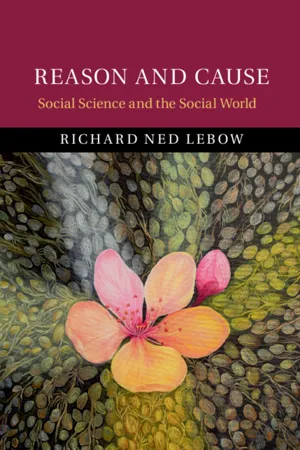
- English
- PDF
- Available on iOS & Android
About this book
Philosophy and social science assume that reason and cause are objective and universally applicable concepts. Through close readings of ancient and modern philosophy, history and literature, Richard Ned Lebow demonstrates that these concepts are actually specific to time and place. He traces their parallel evolution by focusing on classical Athens, the Enlightenment through Victorian England, and the early twentieth century. This important book shows how and why understandings of reason and cause have developed and evolved, in response to what kind of stimuli, and what this says about the relationship between social science and the social world in which it is conducted. Lebow argues that authors reflecting on their own social context use specific constructions of these categories as central arguments about the human condition. This highly original study will make an immediate impact across a number of fields with its rigorous research and the development of an innovative historicised epistemology.
Frequently asked questions
- Essential is ideal for learners and professionals who enjoy exploring a wide range of subjects. Access the Essential Library with 800,000+ trusted titles and best-sellers across business, personal growth, and the humanities. Includes unlimited reading time and Standard Read Aloud voice.
- Complete: Perfect for advanced learners and researchers needing full, unrestricted access. Unlock 1.4M+ books across hundreds of subjects, including academic and specialized titles. The Complete Plan also includes advanced features like Premium Read Aloud and Research Assistant.
Please note we cannot support devices running on iOS 13 and Android 7 or earlier. Learn more about using the app.
Information
Table of contents
- Cover
- Half-title page
- Title page
- Copyright page
- Dedication
- Contents
- Preface
- Acknowledgments
- 1 Reason and Cause
- 2 Homer and Sophocles
- 3 Thucydides
- 4 David Hume
- 5 Dickens, Trollope, and Collins
- 6 Max Weber
- 7 Thomas Mann and Franz Kafka
- 8 Conclusions
- Bibliography
- Index